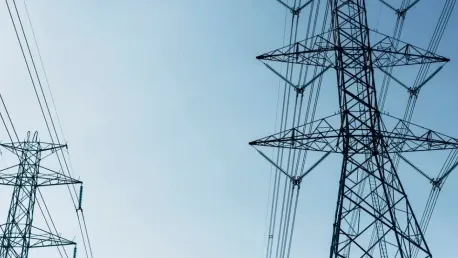A recent ruling from the U.S. District Court for the Western District of Texas has significantly altered the landscape for transmission line construction in the state. By striking down a Texas law that awarded incumbent utilities the exclusive rights to construct transmission lines connecting to their existing systems, the court has delivered a crucial victory for non-utility transmission developers like NextEra Energy, LS Power subsidiaries, and the East Texas Electric Cooperative. The decision centers on the unconstitutional nature of the Texas utility codes, which were found to violate the dormant Commerce Clause of the U.S. Constitution by restricting interstate commerce.
Background of the Ruling
The Path to the District Court’s Decision
The recent U.S. district court ruling follows a series of legal battles questioning the validity of the Texas law. Back in 2022, the U.S. Court of Appeals for the Fifth Circuit had already indicated that the Texas statute was likely in violation of the Commerce Clause when it instructed the district court to reconsider its initial decision supporting the law. This pivotal appellate court decision laid the groundwork for the latest ruling. The controversy drew considerable attention when Texas Attorney General Ken Paxton appealed to the U.S. Supreme Court after the circuit court’s finding. However, the Supreme Court declined to entertain the appeal, effectively siding with U.S. Solicitor General Elizabeth Prelogar’s stance that the law was inherently unconstitutional.
This sequence of legal events not only exposed the flaws within the Texas utility codes but also highlighted the broader implications for similar laws in other states. With the district court officially deeming the Texas law unconstitutional, the decision has set a legal precedent that will likely influence other jurisdictions maintaining similar monopolistic transmission policies. The case underscores a critical juncture in the ongoing tug-of-war between traditional utility providers and emerging non-utility transmission developers.
Impact on Non-Utility Transmission Developers
For non-utility transmission developers, this ruling could open the doors to a more competitive landscape in Texas and potentially beyond. The stringent nature of the Texas law had previously barred both regional transmission organization-planned and merchant projects, which stifled market competition. By overturning this restrictive statute, the court has not only dismantled Texas’s monopolistic framework but has also signaled a broader move toward market liberalization. This change could foster an environment where innovation and competitive bidding processes can thrive, ultimately benefiting consumers through potential cost reductions and improved service quality.
One immediate reaction to the ruling came from LS Power, which filed a preliminary injunction in response. The injunction aligns with the forthcoming Southwest Power Pool (SPP) board’s vote on the 2024 Integrated Transmission Planning portfolio, which aims to inject $7.7 billion into the grid, including a notable $450 million earmarked for the Potter County-Beckham County economic project. LS Power’s anticipation of a more competitive bidding process underscores the transformative potential of this court decision.
Broader Implications and Future Prospects
Challenges to Utility Arguments
The court’s decision also dealt a blow to longstanding arguments made by utility companies defending monopolistic policies under the pretense of maintaining service reliability. The court dismissed the premise that monopoly strategies are indispensable for ensuring reliable service, highlighting a recurring theme of the utility industry’s resistance to competition. This aspect of the ruling could spark a reevaluation of similar arguments used across the nation, as non-utility entities push for increased market access. The broader message is clear: competitive practices can coexist with, and potentially enhance, service reliability.
Moreover, this ruling may pave the way for policy shifts that favor a more open and fair transmission market. Competitive developments in transmission projects could yield innovative solutions and cost efficiencies, mitigating the traditional risks associated with utility monopolies. This potential shift benefits consumers by offering more choices and potentially lowering electricity prices due to increased competition. The ruling, therefore, functions as both a judicial rebuke of monopolistic practices and a catalyst for market reform.
National Impact and Future Legal Challenges
A recent decision by the U.S. District Court for the Western District of Texas has dramatically changed the rules for building transmission lines in the state. The court struck down a Texas law granting incumbent utilities exclusive rights to build transmission lines connecting to their existing systems. This ruling is a significant win for non-utility transmission developers such as NextEra Energy, LS Power subsidiaries, and the East Texas Electric Cooperative. The case centered on the unconstitutional aspects of the Texas utility codes, which were found to violate the dormant Commerce Clause of the U.S. Constitution by impeding interstate commerce. Previously, the law’s exclusivity created an uneven playing field, limiting competition and preventing new entrants from opportunities. Now, with this barrier removed, the landscape for energy infrastructure in Texas opens to more competitive, innovative, and potentially more cost-effective solutions. This legal development could encourage a more robust and diverse market, ultimately benefiting consumers through improved services and possibly lower rates.









